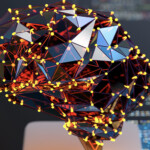Since the emergence of ChatGPT, a prominent example of AI technology, the frequency of mentions of “artificial intelligence” in various forms has significantly increased.
However, amidst the plethora of marketing pitches and claims that have surfaced, it’s crucial to revisit the fundamental essence of AI. Without establishing common ground on what AI encompasses and its limitations, meaningful discussions within the field become challenging.
To delve into this foundational understanding, Accounting Today conducted an AI Thought Leader Survey involving 22 experts in the field of AI and its implications in Accounting. Rather than focusing on cutting-edge applications, the survey aimed to address core concepts essential for tackling overarching issues in the domain.
Diverse perspectives emerged when defining AI. While some, like Wesley Hartman from Automata, emphasized artificial general intelligence (AGI) that mimics human cognition, others, such as Wes Bricker from PwC, viewed AI more broadly as technologies enhancing human capabilities through advancements like deep learning.
Amidst varied interpretations, a consensus emerged that AI can perform tasks typically requiring human intelligence. Jin Chang, CEO of Fieldguide, elaborated on AI as a model of human cognition enabling machines to engage in problem-solving, decision-making, and language comprehension.
The forthcoming segments of this series will delve deeper into AI definitions. Stay tuned to explore the nuances of “artificial brains” and discover what these thought leaders consider as non-AI.





